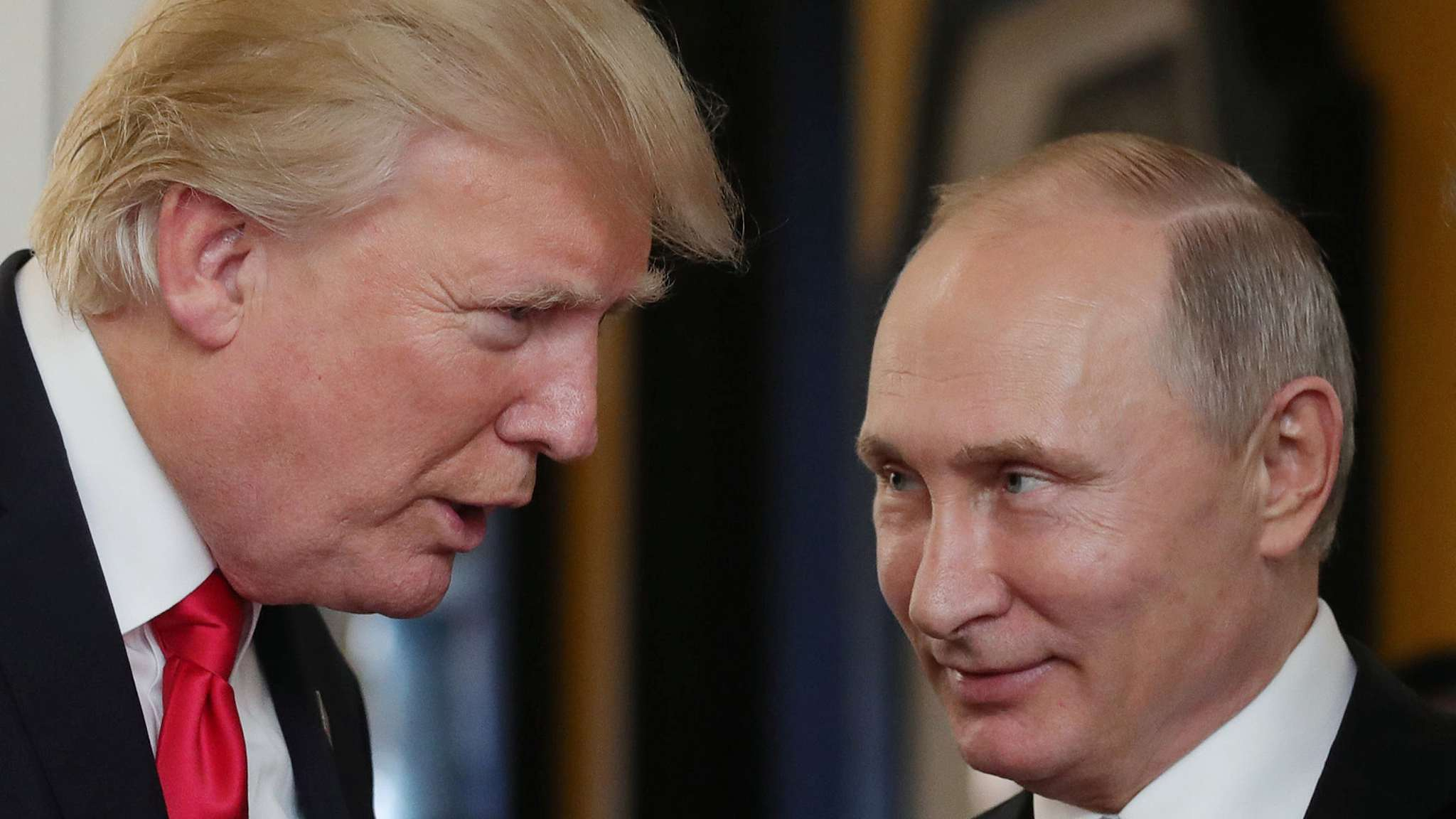
(Photo: CGTN)
On July 16, Trump and Putin will meet in Finland. This meeting is due to the interests of both sides. Putin wants to normalize Russia-US relations and let the West lift sanctions on Russia. Trump wants to establish strategic mutual trust with Russia so that Russia will not create trouble for the US.
But the question is, will the US and Russia really get closer? If so, to what extent? And what impact will this have on the “China-US-Russia” triangle?
From strategic and tactic perspectives, American political elites, Republicans, and Democrats are hostile to and distrust Russia. But strategic scholars in the US have come to realize that Russia will not threaten US national security or status in the international community.
Moreover, there is no ideological war, territorial dispute, economic competition, or competition for world order between Russia and the US. In conclusion, the US is a player in the global game, while Russia is a player in regional games (the games in the Middle East and Northeast Asia).
Apparently, Putin knows this.
Putin dared to fight with the West. As a consequence, Crimea became part of Russia again. However, Russia, being sanctioned by the West, cannot afford to have a longtime bad relationship with the West.
Indeed, despite its slogans and toughness, Putin's diplomacy aims to normalize Russia-US relations and be accepted by the West. Don’t forget Russia has always been an important player in the game of the West.
Russia’s foreign policy has never been under the yoke of rules or promises. It is based on Russia’s interests. If the US gives Russia enough benefits, Russia will be willing to satisfy the US by sacrificing its partnership or alliance.
Same with Trump. He has been longing to fix US-Russia relations since the presidential election. Nevertheless, he was pushed back by all kinds of investigations. Now it’s his opportunity to talk with Putin directly.
Trump wrote a book called "The Art of the Deal." He and Putin are deal-making masters. Their meeting will define US-Russia relations from a strategic perspective. The two sides will negotiate on the following topics :
Firstly, the Syria crisis and power redistribution in the Middle East. Russia strongly supports Syria and the US ground force does not have any advantage in Syria. The basis is how to form a consensus on Syria’s peace and the destiny of Bashar. If the US gives up Syria, in return, Putin will support Trump on returning Jerusalem to Israel and the plan of founding Palestine. Putin’s voice matters in this respect.
Secondly, the normalization of US-Russia relations and sanctions on Russia. As we all know, Trump has always been wanting to improve US-Russia relations, which is different from the hostility of the American political and military elite. The question is, if Trump invalidates sanctions, what will Putin give to Trump in exchange?
Thirdly, issues regarding global governance. The US may let Russia return to G7, and Russia, in exchange, may compensate for the US decision from a strategic level, and repay the US in “US-China-Russia” triangle.
On US-Russia relations, Trump has been clear. Putin is neither a friend nor an enemy, he is a competitor. This judgment is rationally objective. Under Trump’s vision, the result that may come out of the Trump-Putin summit in Finland should not be too bad. How the US Congress and other elites would possibly resist Trump when he returns home, however, is another story.


